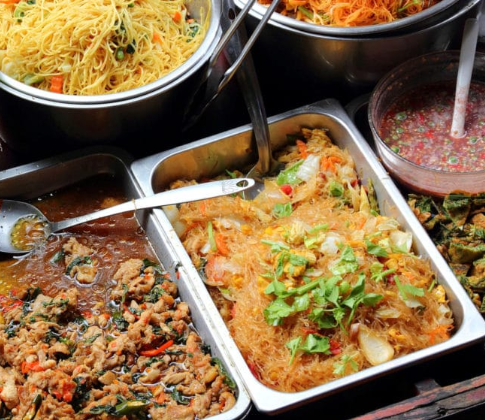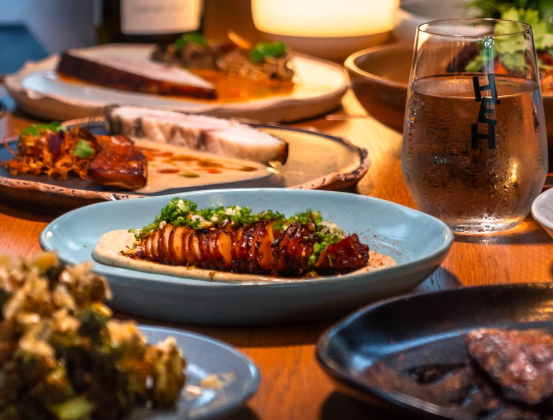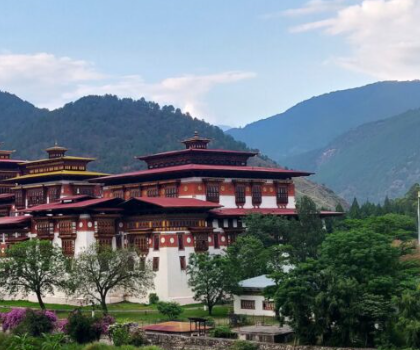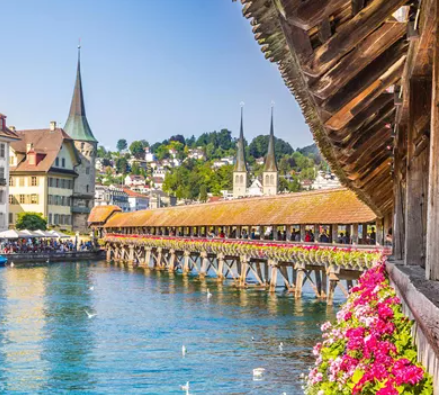
Nestled in the Himalayas, between the powerful neighbors of India and China, lies Bhutan, a country that seems untouched by the rush of modern life. Known as the “Happiest Place on Earth,” Bhutan offers more than just beautiful landscapes and rich culture—it embodies a unique approach to life focused on Gross National Happiness (GNH) rather than traditional economic metrics like GDP. This philosophy is woven into the fabric of daily life, influencing everything from social welfare to environmental conservation. Let’s take a closer look at the factors that make Bhutan so special and why it’s a destination like no other.
A Slow, Peaceful Pace: Embracing a Life of Tranquility
When you arrive in Bhutan, the first thing you’ll notice is the laid-back atmosphere. Unlike the chaotic rush of global cities, Bhutan’s capital, Thimphu, offers a calm, slower pace of life. The streets remain quiet in the mornings, with shops opening only after 10 a.m., giving the entire town a sense of serenity. Crime is almost nonexistent, and the strong sense of community paired with Buddhist values fosters a peaceful environment. With public healthcare and education available for free, the people of Bhutan enjoy a standard of living that reduces the everyday pressures seen in faster-paced societies.
Bhutan’s Natural Beauty: A Harmonious Relationship with Nature
Bhutan’s remarkable natural landscape is integral to its happiness. From lush green valleys and towering snow-capped mountains to crystal-clear rivers, the scenery exudes tranquility. The country has a constitutional commitment to maintaining at least 60% forest cover, ensuring clean air and an abundant natural environment that directly contributes to the happiness of its people. In Bhutan, nature and spirituality are closely connected, with Vajrayana Buddhism guiding daily life and nurturing a deep respect for the environment.
Bhutan’s landscape is dotted with monasteries, temples, and stupas, which serve as both spiritual and cultural landmarks. These sacred sites are not just places of worship; they are centers of community and education, where local people gather for meditation, rituals, and cultural events. Prayer flags flutter across the country, carrying blessings to all.
The Role of Karma and Compassion in Daily Life
In Bhutan, the belief in karma and rebirth plays a significant role in shaping personal behavior and societal norms. The idea that one’s actions in this life affect future lives fosters a culture of mindfulness and compassion. Bhutanese people strive to live with good intentions, as their actions are seen as contributing to their future happiness, or the happiness of those around them. This belief system encourages positive actions, helping to cultivate a supportive and harmonious society.
The philosophy of karma and rebirth also fosters compassion for others, as people view each other as potential beings from their past lives. This outlook reduces conflict and promotes kindness, making Bhutan a society where individuals prioritize the welfare of their community and the environment.
A Culinary Journey: The Flavors of Bhutan
Bhutanese food is a flavorful reflection of the country’s agricultural heritage and diverse culture. Meals typically consist of red and white rice paired with a variety of dishes featuring local vegetables and meats. Ema datshi, the national dish made with cheese and chilies, is a must-try for any visitor looking to sample Bhutan’s bold flavors. Other popular foods include momos (dumplings), which can be filled with vegetables or meats, and buckwheat-based dishes.
Beyond sustenance, food plays an important role in community life. Meals are shared during festivals and religious ceremonies, strengthening bonds and fostering a sense of togetherness. Whether at a family gathering or a national celebration, sharing food is a central part of Bhutanese culture.
Festivals and Celebrations: A Celebration of Life
Bhutan’s cultural festivals are vibrant and full of joy, many of them rooted in Buddhist traditions. The annual tshechu festival, celebrated on the 10th day of each lunar month, features colorful masked dances, traditional music, and lively archery competitions. These festivals are important for preserving Bhutanese culture, with each district hosting its own celebrations. The tshechu is a significant way for Bhutanese people to come together and celebrate their heritage.
The Drukyul Literature Festival is another noteworthy event that celebrates Bhutanese literature and the arts, highlighting the country’s rich cultural legacy. Traditional music, dance, and performances of Bhutanese stories provide a unique opportunity to connect with the country’s artistic expressions.
Strong Family and Community Values
In Bhutan, family and community play a central role in people’s lives. Historically, Bhutanese families lived together in multi-generational households, strengthening familial ties and support systems. While the nuclear family is becoming more common in urban areas, respect for elders and the importance of family remain deeply ingrained in society. The concept of Tasha Delek, meaning “auspicious wishes,” reflects the warmth and hospitality that Bhutanese people show to one another.
Sustainability: A Way of Life
Bhutan is a model of sustainability, where environmental conservation is not a trend, but a way of life. From repurposing old textiles to recycling plastic, the people of Bhutan are committed to reducing waste. Bhutan’s carbon-negative status sets it apart as one of the few countries actively working to combat climate change. Their respect for nature is rooted in the belief that spiritual entities reside in mountains, rivers, and trees, which motivates efforts to protect the environment.
Spirituality and Wellness: A Journey Inward
Bhutan is a sanctuary for those seeking spiritual peace and mental well-being. Its monasteries, temples, and tranquil natural environments offer an ideal setting for meditation and mindfulness practices. Wellness retreats combining spa treatments with traditional Bhutanese healing methods are gaining popularity, offering visitors a chance to reconnect with themselves and nature. Yoga retreats set against the backdrop of Bhutan’s serene landscapes allow travelers to find inner peace and rejuvenate both body and mind.
A Unique Travel Experience
Bhutan is a destination like no other, inviting travelers to disconnect from the fast-paced digital world and reconnect with their surroundings. With limited access to the internet and television, visitors are encouraged to experience the present moment fully. This disconnection from the distractions of modern life provides the perfect environment for self-reflection and relaxation.
A Balanced Approach to Progress
While Bhutan remains committed to preserving its unique cultural identity, the country recognizes the importance of progress. It is cautiously embracing modernization, ensuring that development does not come at the cost of its traditions and natural beauty. Bhutan’s approach to tourism, limiting the number of visitors to ensure a sustainable experience, reflects its careful balance between progress and preservation.
Conclusion: Bhutan’s Lessons for the World
Bhutan’s pursuit of Gross National Happiness offers valuable lessons for the rest of the world. It demonstrates that true well-being goes beyond material wealth, emphasizing social well-being, environmental sustainability, and cultural preservation. The country’s commitment to living in harmony with nature, fostering strong community ties, and embracing mindfulness provides a blueprint for creating a more fulfilling and joyful society. Whether or not Bhutan remains the “Happiest Place on Earth” is up for debate, but it undeniably offers insights into how a holistic approach to life can lead to lasting happiness.
Visiting Bhutan: A Journey to Happiness and Serenity
For those seeking a profound and authentic travel experience, Bhutan is a destination that will leave a lasting impact. By embracing Bhutan’s principles of sustainability, cultural respect, and mindfulness, visitors can gain a deeper understanding of what truly matters in life and walk away with memories of a place where happiness comes naturally.








